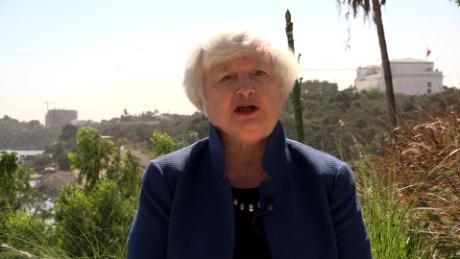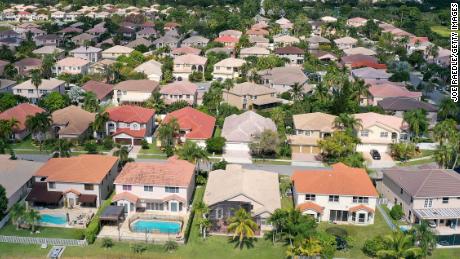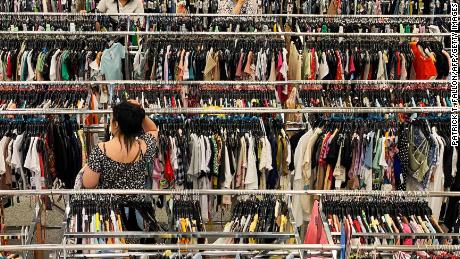Home prices are setting new records as buyers scramble for an accepted offer amid a continuing inventory crunch.
The median sale price was a record high $329,100 in March, according a report from the National Association of Realtors. It was the highest median price since NAR began tracking in 1999. The median price, which includes existing single-family homes, townhomes, condominiums and co-ops, was up a record 17.2% from a year ago.
Much of that home price appreciation was fueled by competition. While the inventory of homes for sale in March inched higher since February, it was still down 28.2% from one year ago.
That means buyers have to act fast. According to NAR, properties typically sold in a record low time of 18 days in March and 80% of all homes sold in March were on the market for less than a month.
Still, the lack of inventory is starting to hurt overall sales, which dropped 3.7% since February.
"The sales for March would have been measurably higher had there been more inventory," said Lawrence Yun, NAR's chief economist.
"What our brokers and realtors are saying when I pose the question 'If you had 20% more inventory, would you have 20% more sales?,' The answer is 'yes, yes, yes,'" Yun added.
Buyer demand is still there, he said. "It is the lack of inventory that is hindering sales activity."
The inventory crunch continues
According to the NAR report, there is more inventory at the higher end of the market.
The only price category with increased inventory from a year ago are homes priced over $1 million and the number of sales in that category has doubled from a year ago.
Meanwhile, inventory of homes priced between $100,000 and $250,000 are down 36.6% from last year and sales have dropped 10.2% during that time, according to NAR.
"The lack of homes for sale continues to push prices up to record levels, putting homeownership out of reach for more and more Americans," said Robert Frick, corporate economist at Navy Federal Credit Union.
It will take some time, Frick said, but the country will need to build its way out of this problem.
"While rates of building are high, despite limits on land, labor and materials, we still are suffering from historically low home building in the last decade," he said.
Yun said he does see some improvements in the inventory picture in the year ahead. Seasonally more people tend to list their homes in April, May and June, he said, and the vaccine roll-out should improve people's comfort with moving if they were concerned about the pandemic.
Another potential increase for homes on the market are those in which the homeowner has fallen behind and may be in a period of forbearance, or a delayed or deferred payment, with their lender or those that are rentals with struggling tenants.
"As mortgage forbearance winds down we think more of those listings will show up and when the eviction moratorium expires we think that some investors may want to unload their properties."
Is this a bubble?
Rapid home price appreciation raises concerns about whether we're in a housing market bubble.
But instead, Yun said, his concern is that economic conditions could lead to permanently higher prices resulting in a widening gap between haves and have nots.
"You will have homeowners gaining wealth and renters missing out," he said.
Rapid price appreciation can lead to what he called an "arbitrary outcome" for family wealth.
Yun pointed to San Francisco years ago before it had some of the most expensive real estate in the country. If you had two middle-income families and one bought a home and one did not, he said "one family is now a millionaire and the other is not. It leads to an arbitrary outcome as a result of the high home prices due to lack of supply."
He said this is a very concerning prospect.
Yun called for serious consideration to be given to increasing the housing supply, including looking at zoning and building regulations to accelerate new construction, and reducing the cost of materials.
The recent infrastructure spending program has provisions to rehabilitate housing that could boost supply. He suggested some people are even looking at a temporary reduction of the capital gains tax that could encourage some investors holding homes to sell them, opening up homes for first-time buyers.
"Normally with any product when demand rises, production will catch up," he said. "That has not been happening."



















